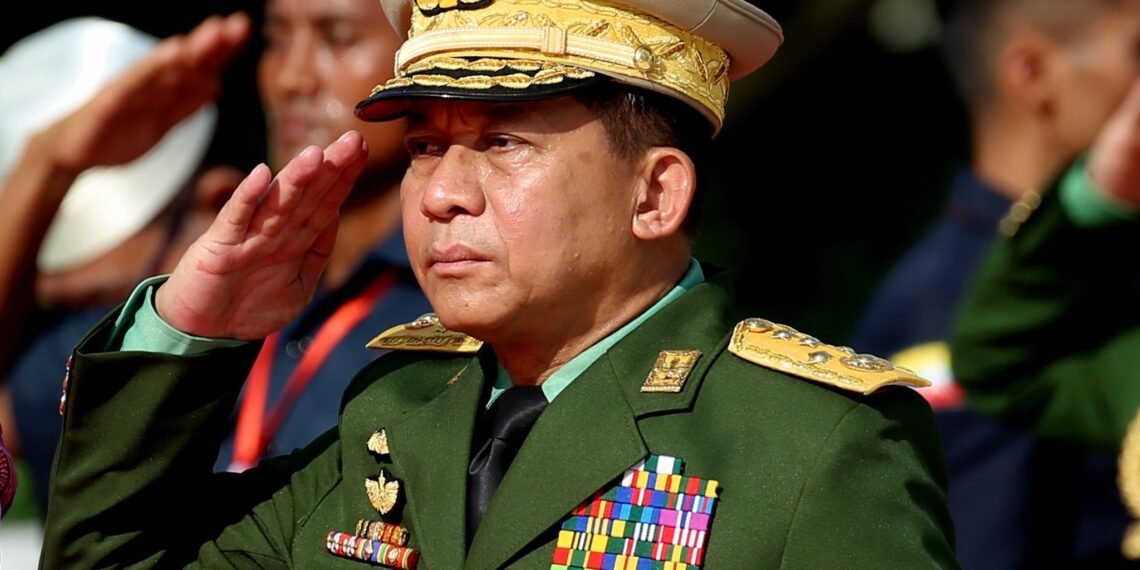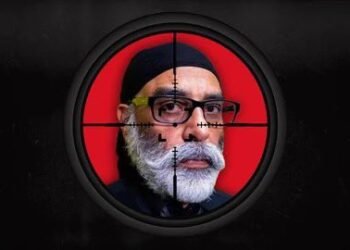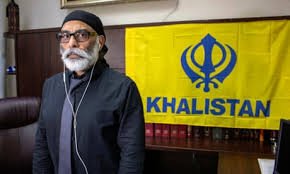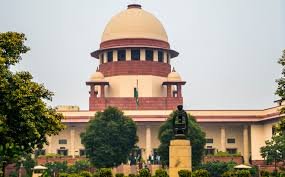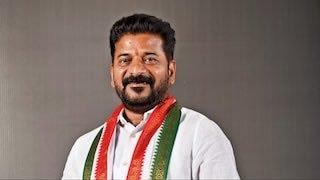The military-led government lifts emergency powers and forms new commissions under Min Aung Hlaing, raising fears of a rigged vote under the guise of reforms.
BY PC Bureau
August 1, 2025 — The military junta in Myanmar has officially ended the state of emergency it imposed more than four years ago, raising the curtain on a general election planned for December. But as the army prepares to manage every aspect of the vote — from electoral commissions to voter lists — a key question looms: Can a military-engineered process ever lead to genuine democracy?
The decision to lift emergency rule was announced on July 31 by junta spokesperson Zaw Min Tun, who declared it a move toward “multi-party democracy.” Yet opposition groups and international analysts see it differently — as a strategic shift by Senior General Min Aung Hlaing to consolidate power under a democratic façade.
A Fragile Premise for Polls
The state of emergency was first declared on February 1, 2021, following the military’s controversial coup against Aung San Suu Kyi’s democratically elected National League for Democracy (NLD). The army alleged — without evidence — that the 2020 election had been rigged. That narrative triggered mass protests and a violent nationwide crackdown, eventually plunging the country into civil war.
READ: Finally, SC to Hear Biren Singh Tape Case on August 4
Since then, over 3 million people have been displaced and thousands killed. Despite the junta’s insistence that peace is a prerequisite for elections, it now claims that conditions are sufficient to hold a national vote — even as fighting continues in large swaths of the country.
The junta’s new administrative structure offers little reassurance. A “Union Government” has been formed, led by General U Nyo Saw — a close confidant of Min Aung Hlaing. The military chief himself remains acting president and now chairs a “National Security and Peace Commission.” He also oversees the newly appointed 11-member Union Election Commission — essentially placing all electoral oversight in the military’s hands.
In other words, the referee, the players, and the rule-makers all wear the same uniform.
Min Aung Hlaing has cast this next phase as “the second chapter” of national progress. But critics argue that the upcoming vote is not a transition — it’s a trap: an attempt to legitimize an authoritarian structure through tightly controlled ballots.
Security, Silence, and Suppression
Evidence suggests the junta’s reach is still patchy at best. A 2024 census failed to cover over 19 million people, a glaring hole in the voter roll infrastructure. Meanwhile, martial law has been extended across nine of Myanmar’s 14 regions — hardly the conditions for a participatory election.
READ: Jiribam and Imphal: Two Brutal Cases—One Fast-Tracked, the Other Forgotten
A new law passed by the regime criminalizes dissent related to the electoral process with prison terms of up to 10 years. Most major opposition leaders, including Suu Kyi, remain imprisoned or barred from public life. The NLD and the shadow National Unity Government (NUG) have rejected the process outright, calling it a “sham.”
#Breaking
Myanmar junta ends state of emergency in election run-up
📌Myanmar ended its state of emergency, ramping up plans for a December election that opposition groups pledged to boycott and monitors said will be used to consolidate the military’s power.#Yangon #Myanmar… pic.twitter.com/ZgCM3gG8JB— ⚡️🌎 World News 🌐⚡️ (@ferozwala) July 31, 2025
Training for electronic voting machines has begun, but with no free press, limited civil society, and ongoing armed conflict, transparency remains elusive.
While China has cautiously welcomed the move toward elections, most of the world sees the process as deeply compromised. A UN special rapporteur recently called the planned poll “a fraud,” echoing concerns voiced by rights groups and regional experts.
Internally, armed resistance movements have vowed to disrupt the election, while the junta has responded with cash rewards for rebels who surrender — a sign of both desperation and distrust.
Is the Vote Already Decided?
The very architecture of the process appears rigged for a foregone conclusion. The military is unlikely to allow any opposition victory, particularly when it retains control of 25% of parliamentary seats by constitutional mandate — and more through allied parties.
As violence escalates and millions remain disenfranchised, the central question is no longer whether the junta can hold an election — but whether it should. Can a vote managed, monitored, and dominated by the military truly reflect the people’s will?
For many in Myanmar, the December election doesn’t mark the end of a state of emergency — it marks the beginning of a new chapter of state-managed legitimacy.



